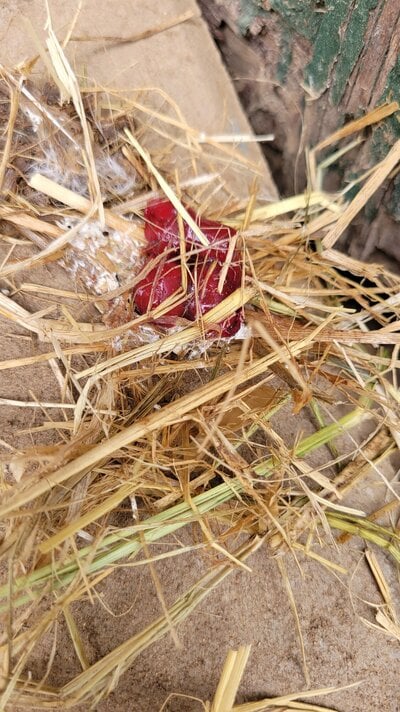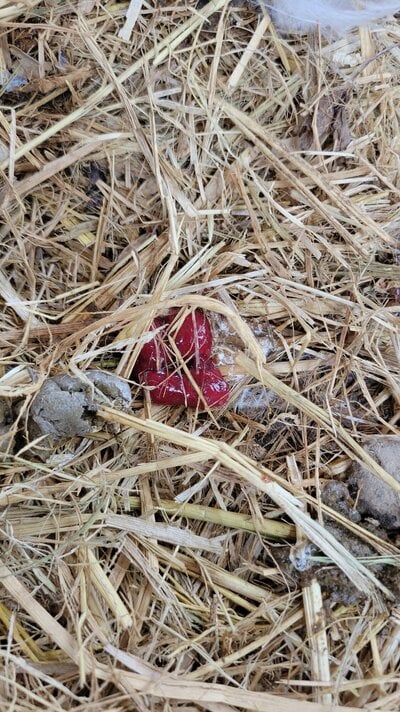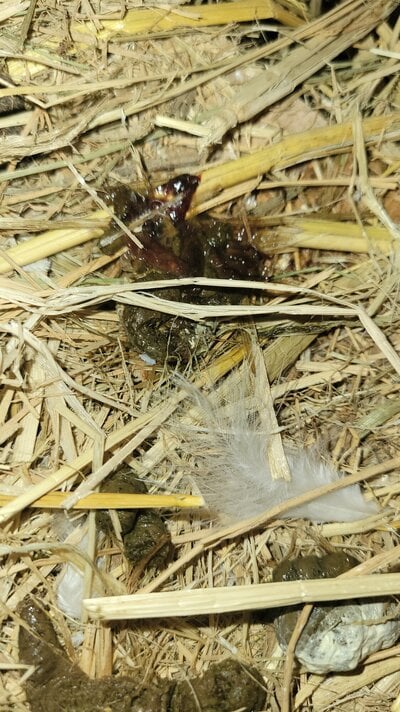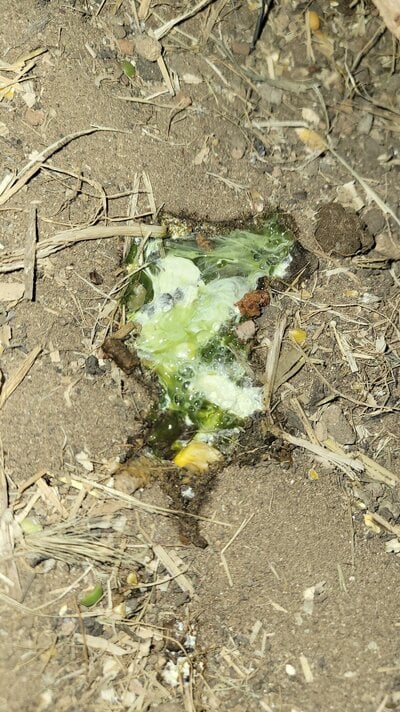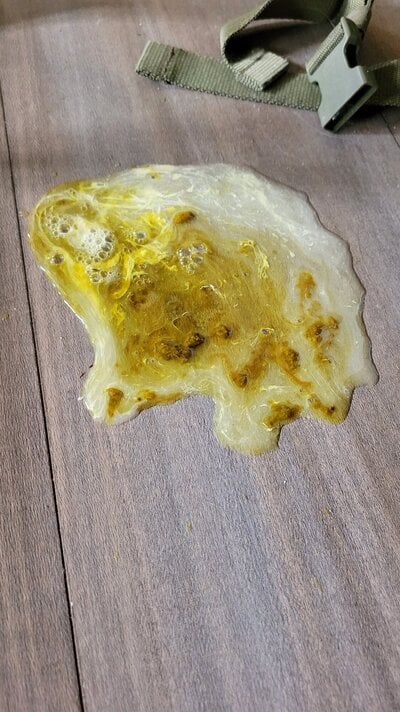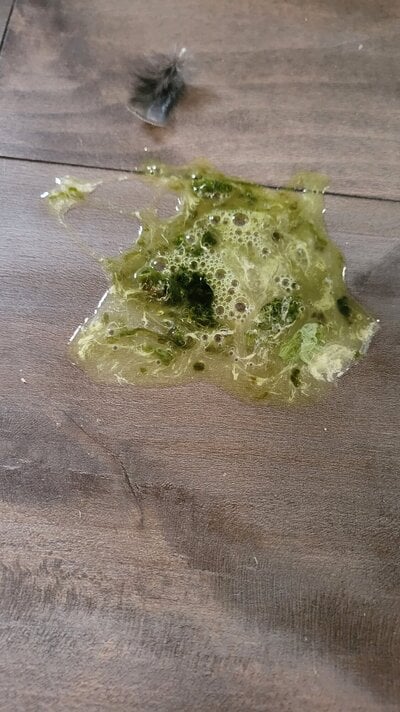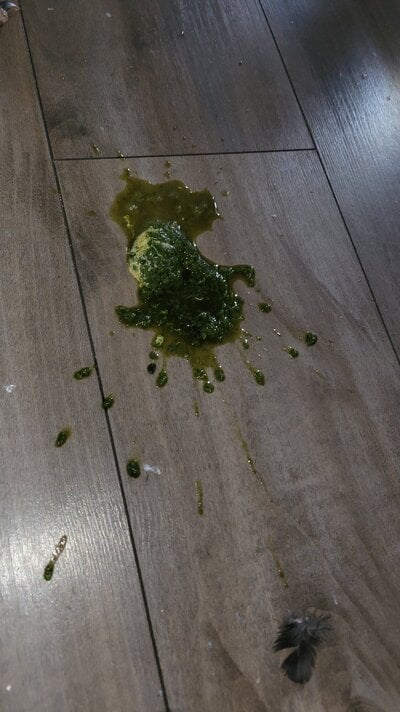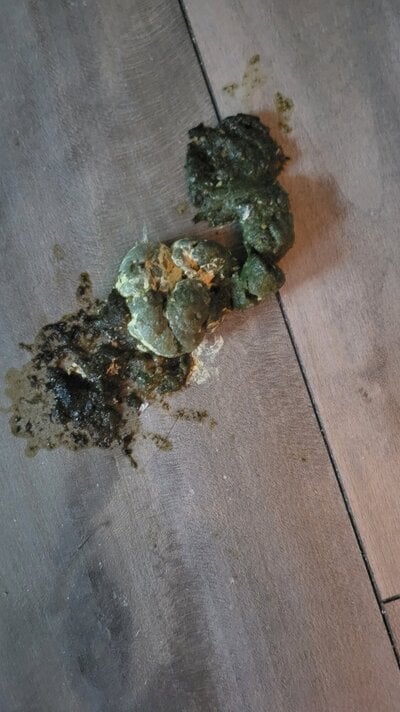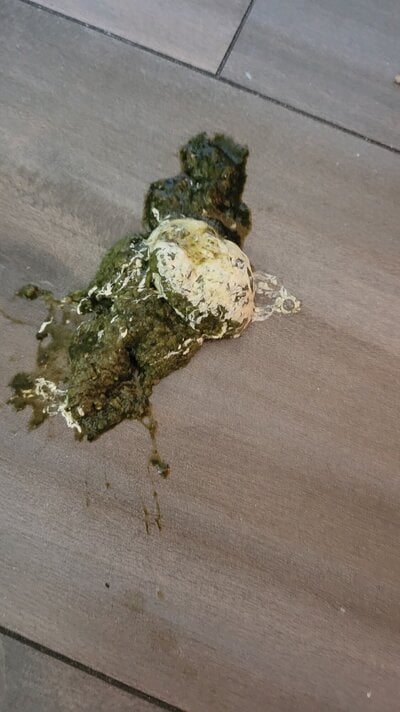Nckyturkma
Chirping
Hello everyone. I have 2 ameraucauna chicks, a hen and a roo, and a bb bronze turkey that were all raised together. I have had them since they were a day old. They are 13 weeks. We transitioned them outside into a coop a few weeks back (kept them inside longer than normal to help the turkey build up it's immune system in hopes of giving it a good chance in case of blackhead).
All seem happy and healthy. They are fed crumbles and occasionally a little scratch or some fruits/veggies from time to time (no berries). Just introduced them to watermelon a few days ago. All eating and drinking.
They were out running around the yard today for a few hours and when I put them back in coop I saw a red colored poop in the run- just one. It is small so I believe it is one of the chickens. Could it be stomach lining or does it look like coccidiosis? I have attached a photo.
We also have 3 laying hens in a separate coop that is next door to theirs. If I need to treat the chicks should I treat the older hens in the separate coop too? Can the turkey and chicks all get the same dose of Corid if I need to treat them?
Thank you in advance.
All seem happy and healthy. They are fed crumbles and occasionally a little scratch or some fruits/veggies from time to time (no berries). Just introduced them to watermelon a few days ago. All eating and drinking.
They were out running around the yard today for a few hours and when I put them back in coop I saw a red colored poop in the run- just one. It is small so I believe it is one of the chickens. Could it be stomach lining or does it look like coccidiosis? I have attached a photo.
We also have 3 laying hens in a separate coop that is next door to theirs. If I need to treat the chicks should I treat the older hens in the separate coop too? Can the turkey and chicks all get the same dose of Corid if I need to treat them?
Thank you in advance.
Attachments
Last edited:

